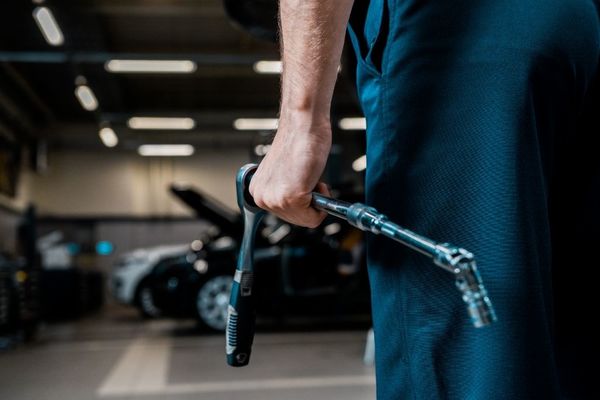
Let’s face it, with the new technology being used in vehicles today, many of us don’t have the expertise to repair our cars as we did in years past. The simple engine designs of yesteryear have been replaced with computers and other gizmos that are complicated and, even worse, hard to reach. So most of us must rely on mechanics and our local auto repair shop to maintain and repair our vehicles.
When you bring your automobile or other motorized devices into a mechanic or repair shop, you have certain expectations. The foremost expectation is that the repair or maintenance will be done correctly so that the car is safe to drive. But what if you get into an accident after having your car repaired, and you suspect that a faulty repair was to blame? How do you prove that the mechanic or repair shop is liable for your accident?
Automotive Repair Customer Rights
First, let’s cover some basic rights and entitlements that you can expect whenever you get your car serviced or repaired. These rights are set forth in Chapter 46.71 of the Revised Code of Washington (RWC).
- If your repair costs more than $100, you have the right to a written estimate. Exceptions to this rule are:
- If you waive the right to the estimate;
- If you give oral or written consent to the repair without face-to-face contact with service personnel; or
- If the vehicle qualifies as a horseless carriage, collector vehicle, street rod vehicle, custom vehicle, or parts car.
- At the time you authorize the repair, you can request that any replaced parts get returned to you. If you make such a request, the mechanic must return those parts so that you can inspect them.
- During the repair, the mechanic may determine that the estimate was off. If the actual cost will be 10% or more over the estimate, the mechanic must get oral or written authorization from you to continue with the repair.
If the work is done following your authorization as outlined above, then you are legally required to pay for the repair before you can remove your vehicle from the repair shop’s premises.
Is a Mechanic Liable for Damages from Repairs?
A mechanic may be liable for damages if repairs are performed negligently, without authorization, or defectively. Mechanics have a duty to perform repairs safely and competently and may be held responsible for resulting harm from a failure to meet this standard.
The Repair Shop’s Duty of Care
Even though many repair shops will post a disclaimer stating that they are not responsible for accidents or any damage that results from their repair, this kind of blanket absolution generally doesn’t hold up in court. In most cases, repair shops can be held liable if their shoddy work contributes to an accident after the vehicle leaves the repair shop. Some common examples of mechanic negligence while servicing a vehicle include:
- Making an unneeded or incorrect repair
- Using incorrect or defective replacement parts for the repair
- Damaging the vehicle while making a repair
- Making an illegal modification to the vehicle
- Having unqualified or untrained mechanics work on your vehicle
- Failure to remove obstructions such as debris from the vehicle
- Failure to identify a repair that is necessary for the safe operation of the car
Any automotive repair shop owes its customers a duty of reasonable care when repairing or performing maintenance on a car. If they commit any negligent act – including, but not limited to the actions enumerated above – then the shop may have been remiss in their duties. If you suffered damages because a mechanic or repair shop was negligent, then you may have the right to compensation.
Proving a Repair Shop’s Liability for an Accident
As an example, let’s say that you went to a repair shop to have your car examined because you noticed an unusual noise whenever you stepped on the brake pedal over the past few days. The mechanic examined your car and advised that you needed new brake pads and a brake fluid flush. Thinking that he has given you a reasonable diagnosis, you authorize the repair. When it is done, pay your bill and leave the mechanic’s shop. However, on the way home, you get to an intersection and nothing happens when you press the brake pedal. This causes you to run through a stoplight and crash into another car. It seems obvious that the mechanic did something wrong and caused the accident, but how do you prove it?
First, be sure that you keep all of your estimates and final receipts from the repair shop. This establishes that the mechanic did, indeed, perform the repairs you suspect are at fault, and it establishes that the repair shop owed you a duty of reasonable care.
Second, it is a good idea to exercise your right to receive the part that was replaced by the mechanic. It is possible that the part that was replaced was not defective to begin, or that the part was defective or worn out but was replaced with a defective part. It is desirable to have the old part as evidence should either of these be the case.
Finally, you will need to prove that the repair job led to, or greatly contributed to, the accident. This is where an experienced automobile accident law firm is incredibly valuable. They have the resources to hire experienced mechanics who will inspect your automobile after the accident. This inspection is used to determine whether a shoddy repair job caused your brakes to fail at a critical moment. If so, then you may be entitled to compensation.
If, after inspection, it is found that the labor was not substandard, a defective part may have been responsible for your collision. If an expert forensic mechanic determines that a part used in the repair was defective, your case may switch from a negligence claim to a product liability claim that is aimed at the manufacturer of the faulty part.
Call Us Today!
If your automobile accident was caused by a sloppy repair or maintenance job, you may be entitled to compensation for any damages you have suffered as a result. Our Washington State injury legal team works with professionals who have intricate knowledge of car engineering, repair, and maintenance. These professionals can help us determine if the mechanic or shop that worked on your car were actually the cause of your crash. If so, our experienced injury legal team can go to work for you.
Let our professionals at Brett McCandlis Brown & Conner, PLLC, help put your life back together as quickly and painlessly as possible. Call today or fill out our online contact form for a free initial consultation.


